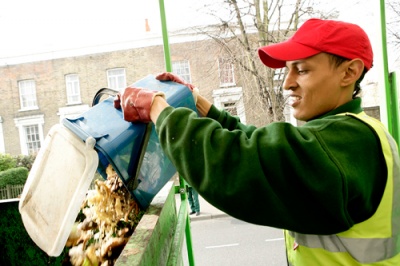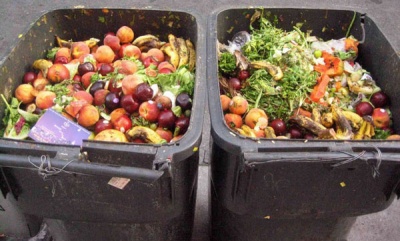WRAP calls for all to ‘unite in the food waste fight’
Consumers are being encouraged to waste less food, after new figures published today (10 January) by the Waste & Resources Action Programme (WRAP) showed that £13 billion of edible food was needlessly thrown away from homes in 2015, a situation Friends of the Earth calls ‘the definition of a scandal’.
 WRAP says that the carbon impact of the 7.3 million tonnes of household food waste, up four per cent from 7.0 million in 2012, is equivalent to the emissions generated by a quarter of the cars on UK roads.
WRAP says that the carbon impact of the 7.3 million tonnes of household food waste, up four per cent from 7.0 million in 2012, is equivalent to the emissions generated by a quarter of the cars on UK roads.
The organisation is therefore calling on governments, businesses, local authorities and consumers to ‘unite in the food waste fight’.
Calling for shared action to fight the rising levels of food waste, WRAP’s CEO Marcus Gover said: “Citizens are wasting one million tonnes less food per year, which means over eight million tonnes less food waste than when we started tackling this issue in 2007.
“But it is incredibly challenging to reduce food waste, and the stalling of progress shows just how difficult it is. That’s why I’m calling on all businesses, organisations, campaigners and NGOs who work in this area to unite together in in the fight against food waste. By working together we can win this battle.”
‘Help people find solutions that work for them’
WRAP is already running the Courtauld Commitment 2025, which is challenging signatories from throughout the grocery supply and recycling chain to reduce food waste levels by at least 20 per cent in the next 10 years, and has this week announced results from two other voluntary commitments for the hospitality and food and drink sectors, but says that individuals must also take action.
Research carried out by the organisation found that almost 60 per cent of people believe they personally waste either no food or hardly any, even though people know food waste is an issue.
Regarding the increase in the UK’s level of food waste, WRAP noted that a rise in the UK population needs to be taken into account, but suggested that food price deflation and increases in earnings since 2014 may have reduced the incentive for individuals to avoid wasting food.

To help people get involved in tackling food waste, WRAP says it is undertaking consumer research, investigating what will motivate people to act differently, what constraints they are under and what messages and interventions will be most effective.
The new strategy aims to raise awareness, increase education and change people’s perceptions of food waste. Lessons will also be sought from WRAP’s work in Wales, where nearly all households are offered food waste collections as part of their recycling services, and where household food waste has reduced by 12 per cent per person since 2009.
Additionally, WRAP’s consumer campaign Love Food Hate Waste has been refreshed to offer tailored solutions to people to help them make the most of the food they buy. The new features of the site include a short quiz designed to help people find solutions that work for them, from utilising ‘life hacks’ to save time and money to setting out meal plans.
‘The definition of a scandal’
WRAP’s call to action follows the publication of results from its Courtauld 3 Commitment (CC3) and Hospitality and Food Service Agreement (HaFSA), which both sought to reduce food and packaging waste among businesses and households, with mixed results.
In particular, while the CC3, which was signed by 53 retailers and businesses from the food and drink supply chain, had a target of reducing household food and drink waste by five per cent through better information and advice for customers, the figure, as seen above, actually rose over the three-year commitment.
 While WRAP has now gone on to launch Courtauld Commitment 2025, which has a wider base of signatories, environmental campaign group Friends of the Earth says that such voluntary agreements are not enough to make a telling difference in the fight against food waste and that the government must play more of a role in enforcing changes.
While WRAP has now gone on to launch Courtauld Commitment 2025, which has a wider base of signatories, environmental campaign group Friends of the Earth says that such voluntary agreements are not enough to make a telling difference in the fight against food waste and that the government must play more of a role in enforcing changes.
Responding to the new figures, Friends of the Earth food campaigner Kierra Box said: “While people live in food poverty, and climate emissions associated with food production climb, the UK still wastes millions of tonnes of food each year – that’s the definition of a scandal, all the more so when the amount of food binned at home increased in 2015, despite efforts to cut it.
“If we want this fixed, government should ensure action at every level of the supply chain, from measuring and cutting farm waste, to setting up statutory household food waste collections across England. Voluntary initiatives have made some headway, but on their own won’t resolve this problem. "









